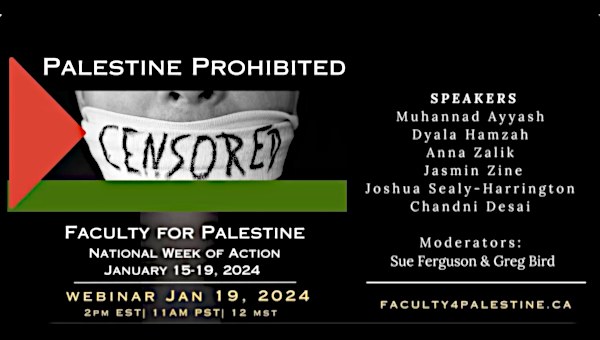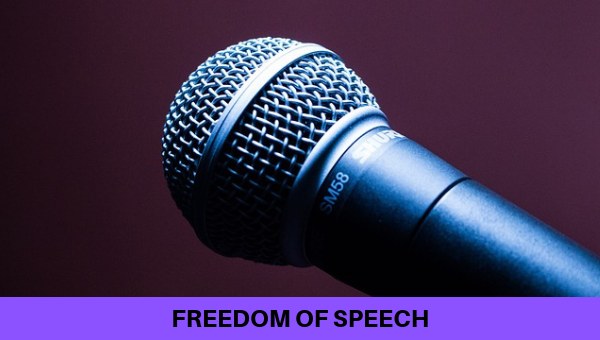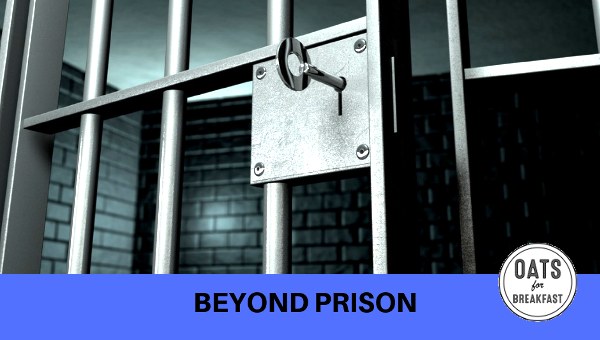The Torture of Mumia Abu-Jamal Continues off Death Row
Supporters Demand Transfer to General Population
On December 7, following the U.S. Supreme Court’s refusal to consider the Philadelphia District Attorney’s final avenue of appeal, current DA Seth Williams announced that he would no longer be seeking a death sentence for the world-renowned death row journalist Mumia Abu-Jamal – on death row following his conviction at a 1982 trial deemed unfair by Amnesty International, the European Parliament, the Japanese Diet, Nelson Mandela, and many others. Abu-Jamal’s sentence of execution was first “overturned” by a federal court in December 2001, and during the next ten years, he was never transferred from death row at the level five supermax prison, SCI Greene, in rural western Pennsylvania.
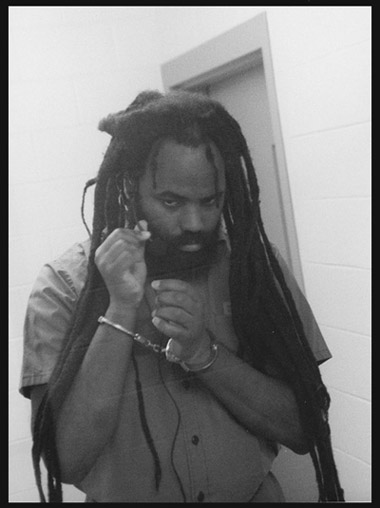 Shortly after the DA’s announcement in early December, Mumia Abu-Jamal, now 57 years old, was transferred to SCI Mahanoy in Frackville, PA, 100 miles from Philadelphia. Once there, it was expected that he would be released from solitary confinement and transferred into general population where he would finally have contact visits and generally less onerous conditions. However, he was immediately placed in “Administrative Custody,” in SCI Mahanoy’s “Restrictive Housing Unit” where his conditions of isolation and repression are now in many ways more extreme than they were on death row.
Shortly after the DA’s announcement in early December, Mumia Abu-Jamal, now 57 years old, was transferred to SCI Mahanoy in Frackville, PA, 100 miles from Philadelphia. Once there, it was expected that he would be released from solitary confinement and transferred into general population where he would finally have contact visits and generally less onerous conditions. However, he was immediately placed in “Administrative Custody,” in SCI Mahanoy’s “Restrictive Housing Unit” where his conditions of isolation and repression are now in many ways more extreme than they were on death row.
Presently at SCI Mahanoy, Mumia Abu-Jamal is shackled around his ankles and wrists whenever he is outside his cell, even to the shower and during already restricted visits – where he is already behind Plexiglas; Before going to the yard he is subject to strip searches before and after the visit; He is only allowed bits of paper to write notes on, with a rubber flex pen, and four books (no shelves); No access to news reports; Letters delayed; Glaring lights on 24 hours a day; Only one brief phone call to his wife and one to an attorney; No access to adequate food or commissary, and more.
Online Petition
In the first week of January, at Abu-Jamal’s request, supporters began a campaign directed at the PA Secretary of Corrections, SCI Mahanoy, and DA Seth Williams, demanding that Abu-Jamal be immediately transferred to the general population. The National Lawyers Guild (for whom Abu-Jamal serves as the Vice President) has released a statement and created an online petition demanding his transfer to general population.
Furthermore, Abu-Jamal has asked for supporters to not just call for his release from the hole, but to challenge the very practice of solitary confinement and what are called in Pennsylvania “Restricted Housing Units.” Supporting Abu-Jamal’s call to action, the Pennsylvania-based prison-activist organization called Human Rights Coalition explains that “Mumia may be in solitary, but he is not alone. The PA Department of Corrections holds approximately 2,500 people in solitary confinement on any given day, many of them for years at a time.”
Ten Extra Years Spent On Death Row
In 2001, U.S. District Court Judge William Yohn first “overturned” Mumia Abu-Jamal’s death sentence, ruling that for a death sentence to be reinstated, the Philadelphia District Attorney must first hold a sentencing-phase jury trial, where the jury could only decide between execution or life without parole. The DA immediately appealed this ruling, in an effort to execute Abu-Jamal without bringing him to court before a jury in Philadelphia.
Following Yohn’s 2001 ruling, Abu-Jamal could have been transferred from solitary confinement on death row at SCI Greene, and into general population. If transferred, he would have had more freedom, including contact visits with family and friends. However, Judge Yohn granted the motion by the DA to keep Abu-Jamal in punitive conditions on death row while the DA appealed Yohn’s ruling. As a result, Abu-Jamal stayed on death row during an appeals process that lasted almost ten years, a process that has now upheld the sentence’s removal.
In March 2008, the U.S. Third Circuit Court affirmed Yohn’s 2001 ruling, but in January 2010, the U.S. Supreme Court vacated the 2008 ruling and remanded it back to the Third Circuit. In April 2011, the Third Circuit affirmed the 2001 ruling for the second time. Finally, in October 2011, the DA’s final attempt to challenge the decision was rejected by the U.S. Supreme Court, and in December the DA officially accepted the life sentence.
Fighting for Mumia’s Release
While Abu-Jamal and his international network of supporters celebrated the final overturning of the death sentence, it was a bittersweet victory for a movement that has long fought for his release. In 2008 when the Third Circuit first affirmed Yohn’s 2001 ruling, the Court also ruled against a new guilt-phase trial, effectively ended that avenue of appeal for Abu-Jamal to be released from prison.
At this point, a new trial will likely require the bringing forth of new evidence. The investigation of police and prosecutorial misconduct, including the suppression of crucial evidence and the intimidation of witnesses could also lead to a new trial. These are the avenues that will be pursued to obtain Mumia’s freedom. Among the new evidence that has come out in recent years, Philadelphia journalists Linn Washington Jr. and Dave Lindorff have recently performed a ballistics test, (watch video) fundamentally challenging the DA’s shooting scenario/theory used to convict Abu-Jamal.
In Philadelphia on December 9, the 30th anniversary of Abu-Jamal’s arrest, supporters organized a large event at the National Constitution Center that was attended by over 1,000 people. Declaring that a sentence of life without parole is unacceptable, speakers ranging from author/activist Cornel West to Ramona Africa of MOVE and the International Concerned Family and Friends of Mumia Abu-Jamal, pledged to continue fighting for Abu-Jamal’s freedom. Pre-recorded video messages to the December 9 event were delivered by author/activist Michelle Alexander and the internationally renowned human rights activist Desmond Tutu, who days before has already released a statement declaring:
“Now that it is clear that Mumia should never have been on death row in the first place, justice will not be served by relegating him to prison for the rest of his life – yet another form of death sentence. Based on even a minimal following of international human rights standards, Mumia must now be released. I therefore join the call, and ask others to follow, asking District Attorney Seth Williams to rise to the challenge of reconciliation, human rights, and justice: drop this case now, and allow Mumia Abu-Jamal to be immediately released, with full time served.”
An interview with Bret Grote of Human Rights Coalition
Hans Bennett of Prison Radio
In this interview we speak with Bret Grote from Human Rights Coalition (HRC), who’s website describes itself as “a group of predominately prisoners’ families, ex-prisoners and some supporters,” whose “ultimate goal is to abolish prisons.” HRC seeks “to empower prisoners’ families to be leaders in prison organizing, while at the same time reduce the shame of having a loved one in prison or being formerly incarcerated,” and “to make visible to the public the injustice and abuse that are common practice throughout our judicial and prison systems across the country, and eventually end those abuses.” Learn more at www.hrcoalition.org.
Prison Radio (PR): Supporters of Mumia Abu-Jamal argue that his current time in the hole is a form of retaliation for his being a longtime political activist. In his recent article entitled, “Sadism in the Cell: Thanks to a Vindictive Prison System, Abu-Jamal is Still in ‘The Hole,’” Linn Washington Jr. contextualizes recent events by documenting a long history of repression, ultimately arguing that “while Abu-Jamal detractors indignantly dismiss all claims of his being a political prisoner, his post-arrest ordeals provide a compelling case of a person specifically targeted by authorities for who he is politically more than for the crime he is supposedly serving time for.” Why do you think it is that Mumia is currently being held in “Administrative Custody?”
Bret Grote (BG): In regard to Mumia, the inference should always be that the government is targeting him because of his politics due to the more than forty years that federal agents, Philadelphia police and prosecutors, governors of Pennsylvania, and prison officials have been conspiring to silence him. The current rationales offered by prison officials for his placement in solitary confinement do not withstand scrutiny, which lends further support to the inference that he is continuing to be targeted.
First, they asserted that they were waiting for the filing of paperwork by the District Attorney’s office of Philadelphia so that his sentence would be formally changed from death to life without the possibility of parole. According to information available on the DOC’s website, however, all death-sentenced prisoners are held on death row at State Correctional Institution (SCI) Greene or SCI Graterford. Abu-Jamal was removed from death row virtually as soon as Philadelphia DA Seth Williams announced he would not seek to re-impose the death penalty. If the prison were in fact waiting for a formal re-sentencing prior to placement in general population, Mumia would still be on death row.
Second, they have recently decided that his hair exceeds the regulatory length and that he needs this cut. It took them five weeks to notify him of this. Obviously, the length of Mumia’s hair was not unknown to prison officials. In fact, he was held on disciplinary status while on death row earlier during his confinement for eight years, although he was removed from that status – without cutting his hair – in the early 1990s at some point.
The shifting rationales indicate that they are digging their heels in and seem prepared to try to continue subjecting Mumia to solitary confinement torture, which has been his fate for thirty years.
It is important to note that the United Nations Special Rapporteur on Torture has recently declared that, in his opinion, prolonged solitary confinement of more than fifteen days violates article 1 (prohibiting torture) or 16 (prohibiting other cruel, inhuman or degrading treatment) of the Convention Against Torture and Other Cruel, Inhuman or Degrading Treatment. He further stated that the Convention is violated when solitary confinement is imposed as punishment. These standards applied to U.S. prisons renders the overwhelming majority of solitary confinement practices criminal.
PR: Can you please tell us more about how PA Prisons use solitary confinement and what are called “Restrictive Housing Units.” How is it used? Against whom? Are there other examples of solitary confinement punishment being used to retaliate against political activists?
BG: While the Pennsylvania Department of Corrections (PA DOC) operates in a seemingly arbitrary nature, there are some factors that place prisoners at high-risk for being kept in long-term solitary confinement: 1) political activism and jailhouse lawyering; 2) race; and 3) mental illness.
To start with, those who file grievances about staff misconduct and abuse, or file lawsuits about civil and human rights violations, are routinely subjected to repressive treatment. Pennsylvania is far from alone in this practice. Professor of Corrections and Correctional Law at Minnesota State University, James Robertson, has stated that “Retaliation is deeply engrained in the correctional office subculture; it may well be in the normative response when an inmate files a grievance, a statutory precondition for filing a civil rights action.” He also refers to a survey of Ohio prisoners that found:
“that 70.1% of inmates who brought grievances indicated that they had suffered retaliation thereafter; moreover, 87% of all respondents and nearly 92% of the inmates using the grievance process agreed with the statement, ‘I believe staff will retaliate or get back at me if I use the grievance process.’ [FN18] Among staff supervisors, only 21% believed that retaliation never happened, with one warden characterizing it as ‘commonplace’ when inmates resort to the grievance process.”
As Robertson says, guards who retaliate “cannot be regarded as rogue actors. They act within the norm.” (“’One of the Dirty Secrets of American Corrections’: Retaliation, Surplus Power, and Whistleblowing Inmates,” 42 Univ. Mich. Journal of Law Reform 611 (2009)).
Russell Maroon Shoats, a former Black Panther Party and Black Liberation Army member who has been incarcerated in PA prisons for almost 40 years is a prominent example of a political prisoner targeted for repression via placement in long-term solitary. Maroon has been held in the hole for more than twenty years and has not had a misconduct citation during that time. Although it is true that he escaped in the late 70s and early 80s, prison officials have told supporters and family that he is being kept in solitary because he is an organizer and a leader.
Andre Jacobs and Carrington Keys, two members of a group of prisoners known as the Dallas 6, have been held in solitary for approximately 11 and 9 years respectively as a result of their speaking out against torture and other human rights violations inside PA’s control units.
Damont Hagan is another who has been continually targeted for his outspokenness, including a recent incident where he was assaulted and placed in a cell with nooses at SCI Huntingdon. He was recently held in the solitary units at SCI Cresson, a prison that the Justice Department has announced an investigation into, in part due to the guard-encouraged suicide of John McClellan in May 2011.
Caine Pelzer, Ravanna Spencer, Rhonshawn Jackson, Michael Edwards, Jerome Coffey, Andre Gay, Kerry Shakaboona Marshall, and countless others have been thrown into solitary for the sole purpose of breaking their spirit. Look them up on the PA DOC inmate locator and send them a letter.
Regarding race, the disparities within the solitary confinement population may be the most extreme in the entire criminal legal system, which is saying a lot. We do not know the exact figures because the demographics are not public, but reports of solitary units overwhelmingly comprised of people of color in PA prisons are common.
Over the last thirty-plus years there has been a national trend of warehousing those with mental health needs inside prisons. These people often end up in prison because of their difficulties in adapting to life outside the walls, often because of experiences of childhood trauma and substance abuse, and their challenges in navigating social life is even more difficult inside the walls. The stresses of prison can lead to them getting in trouble with prison authorities due to an inability to follow the rules, which leads them to solitary, which leads to a worsening of their underlying psychological state. This cycle of dysfunction is a normative feature of prison systems across the United States.
This nexus of retaliation, racism, and abuse of the mentally ill is widespread in PA prisons, and there is no shortage of examples to be found by reviewing the weekly PA Prison Reports on our website.
PR: Besides solitary confinement, what other aspects of PA prisons does HRC identify as human rights violations?
BG: Some of the obvious examples include physical abuse, medical neglect, racial discrimination, and sexual violence, all of which are chronic issues in prisons within Pennsylvania and beyond. In regard to the latter, a guard at SCI Pittsburgh was recently indicted on about 100 counts related to his rape and torture of prisoners at that facility. This is also being investigated by the Justice Department. This story has been suppressed in the national media, a phenomenon commented on by Mumia (“Rape Blocks” and “From State Pens To Penn State”), in what can only be understood as yet another example of the corporate media’s complicity in enabling torture in U.S. prisons.
Of course, race-based policies of mass incarceration violate the human right of equality under the law and the right to be free from racial discrimination. Michelle Alexander refers to this aspect of the U.S. prison nation as “the new Jim Crow.” Under international law it is known as apartheid, and it is prohibited under the International Convention on the Suppression and Punishment of the Crime of Apartheid. The United States has never signed or ratified the convention for reasons that should be obvious enough.
Pennsylvania is the world leader in another egregious human rights abuse: sending children to prison for the rest of their lives. There are more than 400 people in PA prisons who were sentenced for crimes allegedly committed when they were younger than 18. In this state, life means life, an utterly despicable practice that makes a cruel mockery of any pretense that the society we inhabit is humane, enlightened, or fair.
Also of great importance in any discussion of the criminal legal system is the series of laws that enable “legal” discrimination against formerly incarcerated people, prohibiting them from obtaining access to food, housing, employment, stripping people of their right to vote in many states (though not PA) and setting them up for a life of poverty that guarantees high recidivism rates. This should be understood as a matter of deliberate policy, as it has been going on so long that it cannot plausibly be an unintended consequence of an otherwise sound system.
The system works to violate human rights in such a comprehensive manner, from the socio-economic conditions that give rise to property and drug crimes and related acts of violence to the damaging and anti-human conditions inside the walls, and then to be released into a life of second-class status, enforced poverty, and political disenfranchisement, that it is hard to see how it is ‘legal’ in anything but pretense.
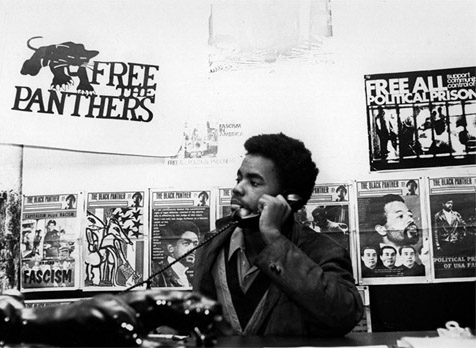
PR: How is Human Rights Coalition working with PA prisoners and their families to improve conditions for PA prisoners?
BG: In Pittsburgh and Philly we have weekly letter-writing to prisoners nights. Visit our website (Pittsburgh or Philly) to learn more and email us at hrcfedup@gmail.com or info@hrcoalition.org. We are constantly receiving phone calls and emails from people looking to advocate for their loved ones. In 2011 we initiated a Political Action Committee in order to be better organized through the building of a membership base and engaging in consistent acts of advocacy, education events, and building other campaigns. The PAC is in real need of some committed organizers to help us build momentum.
One of the campaigns we’ve been increasingly involved with here in Pittsburgh is Decarcerate PA, which was started in Philadelphia. While the broader vision is to push for decarceration – shrinking the prison population, closing prisons, redirecting social resources to programs that care for people and communities – the immediate objective is to push back against planned prison expansion. The state of Pennsylvania is sinking some $685-million into building two new prisons and expanding a host of others. If more people are continually sent into these hellholes, then our efforts to improve conditions in any given situation will be futile.
PR: What is HRC doing specifically to challenge the use of solitary confinement?
BG: Aside from public education and advocacy, we are working to develop a legislative campaign with allied organizations such as the American Friends Service Committee, the National Religious Campaign Against Torture, and the ACLU. While it is still in the planning stages, this campaign can be useful as a means for furthering political organizing objectives.
Ultimately, any efforts to push back against torture and get people out of prison is contingent upon the wholesale removal from power of both corporate-backed imperial parties, the redistribution and redefinition of political power, and the elimination of an economic system with its roots in the market, replaced by one that has its roots in the earth. Anything less spells certain doom for our specific efforts to abolish solitary confinement, mass incarceration, and prisons, as well as our very survival on this planet.
PR: HRC is also now starting a campaign to have Russell Shoats transferred out of solitary confinement at SCI-Greene. How can our readers support this?
BG: Russell Shoats, discussed above, is a co-founder of HRC who has spent 20 years in the hole as a consequence of his principles and resistance to the inhumanity and criminality of this system. He is a 68-year-old revolutionary who has taught and inspired countless other prisoners and activists inside and outside the walls.
Along with HRC, the Center for Constitutional Rights and the National Lawyers Guild have submitted letters to the PA DOC requesting that Maroon be released into general population.
Supporters can visit a recently-created website and click the “Follow” link at the bottom right to receive email updates when new postings are available. There is a sample letter on the site, and soon more material will be added. A new interview was just posted where Maroon discusses his thoughts on the importance of democracy and self-determination to movement building, the power of the feminist movement and matriarchal politics, Occupy Wall Street, and the imperative of centering food security (and square-foot gardening) in our movements.
PR: Anything else to add?
BG: It is absolutely critical to the fate of movements for social justice in this country that the situation of prisoners and the function of prisons in the social order take a central role in our analysis and practice. Everybody can correspond with a prisoner, help out a local group, get on email lists, and research the reality of the prison nation. It is not the land of the free, never was, never was intended to be, and the sooner we disabuse those around us of that notion the better chance there is to win some badly-needed victories. There is no dream too big and no action too small, let’s keep at it till the walls crumble. •
Prison Radio first began recording Mumia Abu-Jamal’s radio essays in the early 1990s and we continue to this day. Our mission is to challenge unjust police and prosecutorial practices which result in mass incarceration, racism, and gender discrimination by airing the voices of men and women victimized by an unjust criminal justice system. Our website, www.prisonradio.org features Mumia’s essays and much more, including the latest news about his case. To receive our email newsletter, please sign up on the bottom of our website’s front page. •


